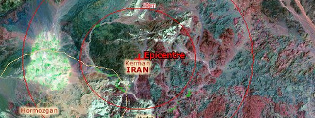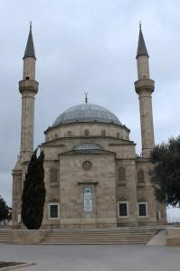Iran (MNN) — Days after twin quakes jolted northwest Iran, the
government is finally asking for help.
Sara Afshari, SAT-7 PARS* Executive Director, notes the initial response. "Sadly,
we make everything political. Even this humanitarian relief, we make it very
political. Therefore, Iran rejecting any
help was coming from their own (policies) and politics rather than them really thinking about the victims."
It
was clear the government thought it could cope with the disaster on its
own. Late Saturday afternoon, the
magnitude 6.4 and 6.3 quakes struck within minutes of each other near the
Iranian/ Azerbaijan border. These were
followed by scores of aftershocks, some as large as a magnitude 5.3 yesterday
afternoon. The government erected shelters for 50,000 people.
Eventually,
state news reports indicated that over 300 people died, and there were more
than 3,000 injured, although that number is expected to climb in the days
ahead. At least 20 villages were
destroyed, and 425 others sustained damage ranging from 50%-80% of
their buildings. Relief agencies say
roughly 300,000 people have been affected by the disaster.
The delay means aid was slow to mobilize, prompting criticism from
observers. However, SAT-7 PARS is using
its broadcasts to help. Afshari says the
team quickly put together a live broadcast Monday and started talking about
needs. "The aim of our show…was
just praying and comforting them and encouraging the other people to help the
victims of the earthquake by being generous in their giving and in their time,
going to the hospitals to give blood or collecting food and collecting clothes
."
Two hours after the SAT-7 PARS program aired, the government
started its programming covering the crisis. Many of the survivors felt overlooked by the government response. There were hundreds who were without food and
water for 48 hours after the quakes struck.
Despair began showing. Afshari
says, "I was reading some Iranian Facebook pages, and this person wrote:
'God, did You think we didn't have enough misery and problems, and You just
wanted to add another one?'"
That's the bigger problem. Aside from addressing the physical needs and encouraging viewers to
give, Afshari says Iranians "…think God has left them. Pray that these
people find God again; pray for them to believe their God didn't leave
them alone, that God is with them, God is suffering with them, and Christ is
suffering with them. It's not about 'God has forsaken them.'"
Their live program addressed this mindset. "Because we believe the power of Christ
brings hope and restoration, and helps people to have a new life," she
explains, "that was the message we
wanted to give to those that were viewing," and not criticizing anyone for
the speed of response or blaming people.
Viewers responded to the live program and poured out their
hearts. Not everyone was pleased about the prayer
efforts, but, Afshari says, "[Sic] We had an opposition calling us and
saying 'you are again trying to evangelize your own religion.' Interestingly, the response to that was: 'Today
is not about evangelizing anybody. Today is about being with the people who
really need hope.'"
This
is the mission of SAT-7 PARS. They broadcast Christian television
programming throughout Iran and into parts of neighboring Afghanistan where
many outsiders could not safely go. While there are presently about 160 Farsi
language satellite television channels available in Iran, only 3 are Christian
channels, including SAT-7 PARS which broadcasts 24/7. Please keep praying
for more opportunities to open the door for the hope of Christ. Pray for the workers who will be the Gospel
in this region. Pray for the funding to
help.
*PARS
is the Farsi language word for "Persian." It references Persian history and
culture in a way that unites Iranian people today and reminds them of a time
before the current domination by religion and regime.


